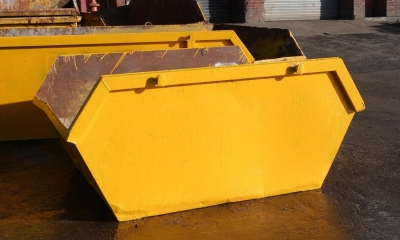
Some of the key areas where legislation is likely to affect your business are listed below.
What licences does an outside catering business need?
As you will be preparing food you will need to register with your local authority environmental health department. Contact your local authority for details. They will inspect your premises - or a commercial grade kitchen in your home if you intend to base your business there - and help you to comply with the requirements of food hygiene regulations made under the Food Safety Act. There is no charge for registering. Contact your local authority to find out more.
If you are providing alcohol for a client, you should check that the event or venue is appropriately licensed if necessary, with a named supervisor who holds a personal licence to sell or supply alcohol. You may well decide that it's advantageous to obtain a personal licence yourself. If the venue doesn't have an alcohol premises licence then you're likely to need a 'temporary event notice'.
You should also be aware that if you are organising a whole event for a client rather than just providing catering, you may need a music licence for the venue from PPL PRS Ltd. Most private domestic events such as weddings are exempt but you should check if you're in any doubt.
Waste carrier registration
If you carry away waste that you have generated in the course of a catering job - such as food and preparation waste, used disposable cutlery, crockery and tableware, empty bottles and containers, and so on - then you will need to register as a lower tier waste carrier (England, Wales and Northern Ireland) or a professional collector or transporter of waste (Scotland) Registration is free of charge and lasts indefinitely.
Waste carrier registration is carried out by:
- the Environment Agency in England
- Natural Resources Wales
- the Scottish Environment Protection Agency
- the Northern Ireland Environment Agency
Food safety
All businesses in the food sector must comply with strict food safety legislation. Before you open, you must register your business with the local authority environmental health department. Your local environmental health officer will be able to give you advice and guidance as to what you should install in your premises and any business vehicles to make sure your operating areas are hygienic and how to comply with the requirements of food safety and hygiene regulations.
You can find out about all aspects of food hygiene and food safety law on the Food Standards Agency website.
Asylum and immigration legislation
Controls on illegal immigration into the UK mean that it is a criminal offence for any business knowingly to employ a person who is not entitled to live or work in the UK. Any employers who do so face an unlimited fine and/or imprisonment. Employers must check employees' documents to ensure they're valid. More information on preventing illegal working is available on the Gov.uk website.
Consumer protection
Consumer protection and fair trading regulations require you to be fair and honest in your dealings with customers. For example, it is illegal to claim on your menus that the lamb in one of your dishes is 'locally sourced' when in fact it came from New Zealand. The regulations also deal with matters like 'off-premises contracts' - contracts you enter into with customers at their home or workplace - and cover things like cooling off periods and cancellation.
Your local authority trading standards department will be able to give you advice on any specific queries you have about consumer protection legislation. There is also detailed information for businesses on the Trading Standards Business Companion website.
Health & Safety, fire
You must comply with workplace health and safety and fire safety legislation.
Employment legislation
Anyone employing staff must comply with employment legislation. Important areas of legislation include recruitment, employment contracts, pay, working hours, holidays, employment policies, sickness, maternity, paternity, discrimination, discipline, grievances, dismissals, redundancies and employment tribunals.
Insurance for an outside catering business
When you start up in business you will need insurance cover. Contact an insurer and explain exactly how your business will operate. They will then be able to recommend what cover you should have. This might include:
- employer's liability
- public liability
- indemnity cover in the event that you fail to fulfil a contract
- product liability and indemnity (this should cover food poisoning and other problems such as foreign objects found in foodstuffs)
- premises, premises contents and stock
- goods in transit (being collected or delivered)
- cash
- business interruption
- motor insurance
Premiums may be paid in a lump or they may be paid in instalments. Your insurer will be able to advise you of the amounts due - enter them in the months when you will pay them.
It is worth noting that some trade associations offer their members special insurance policies, which might save you money and provide the level of cover you need. The Nationwide Caterers Association (NCASS), for example, offers business insurance policies designed specifically for outside caterers. You can find out more on the NCASS website.



